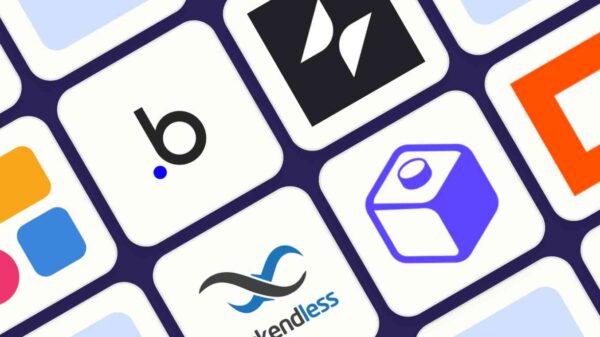Before they became global sensations and iconic performers you know and love today, your favorite idols were once regular a K-pop trainee. More and more people from all over the world are trying to become K-pop trainees as the popularity and notoriety of K-pop grow.
This article will tell you everything you need to know to get your training off to a great start if you want to be a K-pop star. Do not be afraid to reach for the stars, because you can do anything you set your mind to.
How To Become A K-Pop Trainee: Road To Stardom
A) Change Of Lifestyle
1. Discover Korean beauty standards. Companies in South Korea are increasingly hiring foreign trainees, but your audience is mostly Korean. Brush up on the culture if you are unfamiliar. Learn about K-pop culture by reading about customs and etiquette and favorite bands.
2. Try to speak Korean if it is not your native language. You should know the Korean alphabet and say “Hello,” “Goodbye,” “Please,” and “Thank you.” Since trainees must sing in Korean, they must learn the language. No time for Korean classes? Apps like EggBun and Duolingo can help you learn the language on the go.
3. Stay away from scandals and social media posts. Conduct and manners help trainees succeed. Avoid parties with underage drinking or other risks. Keep your social media shame to yourself. Executives and managers can probably access your accounts.
4. Make a YouTube channel to share your videos and gain followers. In addition to covering songs, you should begin recording your own. Try making vlogs about your K-pop training. YouTube channels are often checked for new talent by producers. Plan out when you will add new videos so that your channel is constantly updated, and look into methods for expanding your viewership.
5. Take care of your weight and your health. You should be in good enough shape to keep up with the demanding physical activity of the training program, regardless of the company’s standards for physical attractiveness. Dance practice is a standard part of life for K-pop trainees and even idols.
B) Sharpening Your Skills
1. Get some dance experience under your belt by enrolling in dance classes. If you do not have much dance training, it is a good idea to take a few different classes, focusing on hip-hop and urban styles. Being able to perform exceptionally well is essential for a trainee, and this includes dancing.
2. Improve your singing by working with a vocal coach. A coach can help you improve your singing skills even if you already have a lot of them. Even if they offer no other advice, they may be able to help you perform for longer.
3. Hone your rapping abilities and complete your current body of work. Many songs in the K-pop genre incorporate rapping because of its significance to the genre. Get familiar with the beat and flow of rap by listening to more of the genre and imitating your favorite artists.
4. Become more proficient at songwriting by regularly practicing your craft. While your audition pieces should be well-known hits, your trainee time should be spent creating new songs and choreography. The development of both skill sets is essential for any performer.
C) Auditioning
1. You should choose the businesses you wish to audition for. The entertainment industry is filled with giants like SM, JYP, YG, Cube, LOEN, Pledis, Woolim, and HYBE. Some businesses only accept trainees who already have the requisite singing and dancing skills, while others are willing to teach those who demonstrate potential.
2. Learn your craft well enough to confidently enter an audition. Trainees in the K-pop industry Most K-pop trainees excel at singing, dancing, or rapping. and a basic understanding of everything else. If dancing is your forte, by all means, take lessons and perfect your technique, but do not forget to hone your vocal and lyrical skills as well.
3. Bring at least one Korean song among your three prepared songs for the audition. Consider your strengths and choose songs that highlight them. If you are good at rapping and dancing, choose a Korean song that showcases your skills, another that shows off another type of dancing, and a song you love. The producers will get to see both your skills and your passion.
4. Get producer-ready headshots. Professionals or DIYers can do these. Shoot from various angles, including head-on, side, and full body.
5. On the day of the audition, dress simply and use minimal makeup. The judges will want to see your natural appearance, so try to avoid wearing a lot of jewelry or flashy clothes. Wear form-fitting, neutral clothes to highlight your movements.
6. Go to an in-person tryout, or upload a video for consideration. There are probably live auditions happening somewhere in the world at any given time of year. Check out each company’s online audition forum on their websites if you can not attend a live audition or want to increase your chances of being chosen.
7. It takes time to become a trainee, so be persistent! Many audition multiple times before becoming trainees. Take audition feedback and use it in your next audition. Consult a vocal coach if a judge tells you to improve your voice.
D) Being A Trainee And Loving It
1. Check your contract before joining a company. Being a trainee in the K-pop industry is a long-term commitment. Depending on your age, some companies may even ask you to commit to a five- or six-year contract. Pay close attention to the contract. Professional lawyers can review and explain the fine print if you do not speak Korean.
2. Try to overcome language difficulties and create new trainee buddies. Many trainees sign long-term contracts and spend 18 hours a day together. If you don’t speak Korean or understand the culture, it may take time to make friends and fit in. Be straightforward while communicating, especially if there’s a language issue. Being courteous and helpful to one another while adjusting to trainee life
3. Maintain your health during the rigorous training program. There are a lot of trainees who start work at 5 or 6 a.m. and do not stop until midnight or later. It is possible that, in addition to training, you will also have schoolwork to complete or independent practice to complete.
4. Get used to having your skills assessed once a month. New trainees are often hired, so everyone is evaluated monthly to ensure quality. It can be stressful every month because the company may fire you if you do not perform.




































